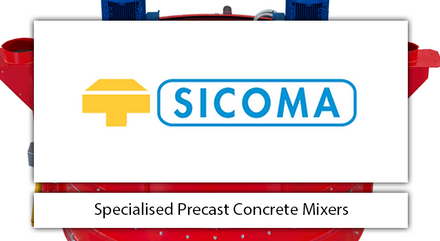
Concrete block paving, known for its versatility, aesthetic appeal, and functionality, must adhere to stringent manufacturing principles to ensure durability and consistency. While most concrete block paving in South Africa performs well, occasional issues like excessive surface wear and block strength variability can arise. This article outlines the essential steps to produce high-quality concrete paving blocks, focusing on key requirements, material selection, manufacturing equipment, ingredient proportioning, and quality control.
Quality Paving - Key Manufacturing Requirements
Concrete paving blocks need to meet specific structural standards, including resistance to abrasion, impact, and chemical attacks. According to SANS 1058:2021, blocks must adhere to tolerance, abrasion resistance, and absorption criteria. The tensile splitting strength should range between 2.0 MPa and 2.6 MPa, depending on the block class, with a 25 MPa strength generally sufficient for most applications. Common block thicknesses include 50, 60, 80, 100, and 120 mm, although larger sizes are rarely economical.

Material Selection
Cement: Use cement complying with SANS 50197 or SANS 50413, with a minimum strength class of 42.5 to ensure rapid strength development.
Aggregates: Natural aggregates conforming to SANS 1083 with a maximum nominal size of 13.2 mm are recommended. Well-graded aggregates that facilitate compaction should be used, with a blend of natural and crusher sand often yielding the best results.
Pigments and Admixtures: Pigments can be added for color, typically in dosages of 5% to 10% by mass of cement. Chemical admixtures can enhance compactibility, which is crucial given the semi-dry mixtures used in block production.
Manufacturing Equipment
Batching and Mixing: Weigh-batching ensures uniform quality. Pan and trough mixers are suitable for semi-dry mixtures, with the mixer size matched to production needs to avoid workability issues.
Moulding Machines: High compaction is essential for paving blocks. Equipment that combines vibration and pressure, with moulding pressures of 10 MPa or more, is ideal. Stationary plants using the pallet system provide the necessary high levels of vibration and pressure.
Curing Chambers: Proper curing methods such as moisture retention, steam curing, and thermal insulation are vital to prevent moisture loss and ensure strength development in newly moulded blocks.
Ingredient Proportioning
Optimizing aggregate grading, aggregate-to-cement ratio, and water content is crucial for specific block-making equipment. Full compaction is essential, as even 1% voidage can reduce strength by about 6%. The cement content depends on several factors, and the optimum moisture content for moulding varies with materials and equipment.
Quality Control Measures
Uniformity in batching and mixing is critical for consistent quality. Aggregates should be well-drained and dry before mixing, and water content must be consistent across batches. Experienced personnel should visually assess the mixtures, making adjustments based on product examination and testing to achieve the desired density and surface texture.
Additional SANS 1058 notes:
SANS 1058:2021 Updates
The primary differences between SANS 1058:2012 and SANS 1058:2021 standards for concrete paving blocks lie in the testing methods and criteria for performance.
Testing Methods
SANS 1058:2012: Introduced tensile splitting strength and abrasion resistance as key performance criteria, moving away from relying solely on compressive strength. It specified tensile strength ratings (e.g., 2.0 MPa for Class 30 and 2.6 MPa for Class 40) and included an abrasion resistance test where the mass loss per block was limited to 15 grams after a specific abrasion test.
SANS 1058:2021: Continued to refine these performance criteria, ensuring that the tensile splitting strength remains a crucial measure due to its relevance in real-world conditions where blocks are more likely to fail by cracking rather than crushing.
Performance Criteria
SANS 1058:2012: Performance was assessed by tensile splitting strength and abrasion resistance, with a water absorption test included as an informative, non-mandatory part of the standard.
SANS 1058:2021: The updated standard maintained these performance criteria, possibly including further refinements to ensure consistent quality and performance in practical applications.
The transition from SANS 1058:2012 to SANS 1058:2021 signifies a continued emphasis on testing methods that better simulate real-world conditions, focusing on tensile splitting strength and abrasion resistance over mere compressive strength, thus ensuring a higher standard for concrete paving blocks.
In summary, producing high-quality concrete paving blocks involves meticulous attention to material selection, precise proportioning, and rigorous quality control to ensure the final product's durability, strength, and aesthetic appeal.
Find out how Quadra South Africa can help you produce quality concrete block pavers by contacting Quadra South Africa today. Click the button below.
Referrences:
Cement & Concrete Institute, 2021. The manufacture of concrete paving blocks. Cement & Concrete Institute, [online] Available at: chrome-extension://efaidnbmnnnibpcajpcglclefindmkaj/https://cemcon-sa.org.za/wp-content/uploads/2021/05/The-manufacture-of-concrete-paving-blocks-2021.pdf [Accessed 18 July 2024].















Comments